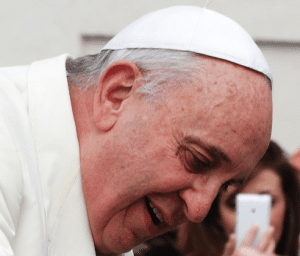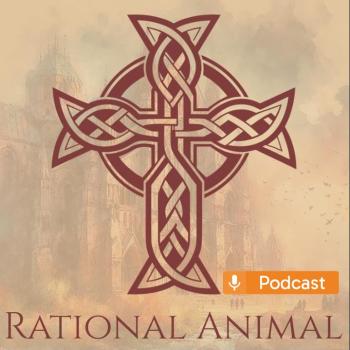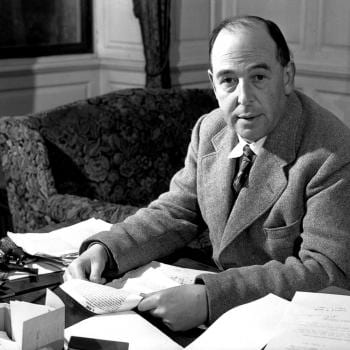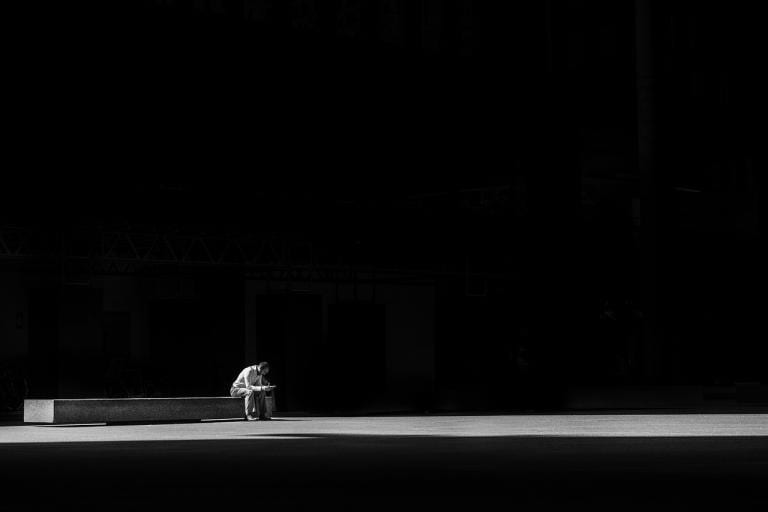Pope Francis has arrived in America, and of course the internet is awash with the complaints of my fellow Catholics. What, precisely, the problems are varies from person to person, but the bottom line is this: in one way or another, the Pope just isn’t being Catholic enough.
Which brings us to the crucial question: what, precisely, is the benchmark of ideal Catholicism against which the Pope is being judged?
It’s a question that goes beyond this particular papal visit, and indeed beyond this particular papacy. I’ve only been a Catholic for fifteen years, but that’s long enough for me to recall the days when John Paul II was a heretic – or at the very least, insufficiently orthodox. You don’t hear much of that anymore, but it was popular enough when he was alive.
I hear that John XXIII was also a heretic. That everyone since Pius X was a heretic. That Vatican II was a heretical council. And of course, if you ask the right Protestants its been all heretics going all the way back to Nicea at least.
I’m not saying that it’s impossible to have a bad Pope, but I think that at some point we have to draw a reasonable distinction between: a) a worldly Pope who commits serious evil in the name of the Church and b) a Pope who sometimes says things that I personally disagree with – or, worse, fails to say the exact things that I would have wanted him to say.
To illustrate why this is important, I’d like to consider the simple analogy between the Pope – a spiritual father – and a parent – one’s actual biological father. Nobody has ever had a completely perfect father, they vary in terms of their actual goodness or badness, but the fact is that the majority of fathers are actually pretty good. Same with Popes.
It is, however, a well-known fact that the vast majority of children go through a lengthy period in their life where everything their father says is stupid, misinformed, just plain wrong. They wander around the house rolling their eyes and every time that their father corrects them or even politely points out that they haven’t done one of their chores, they feel affronted, outraged even.
We call these people adolescents.
The difference between an adolescent and an adult is that a teenager basically believes that he or she knows everything. Other people are right in so far as they confirm the teenagers basic assumptions, and they’re wrong and/or stupid in so far as they contradict or disagree with those beliefs.
One of the major things that happens to most people when they grow up is that they realize that, no, actually, there is way more about the world that I don’t know than there is that I do know. Mature thinking is characterized by a kind of humility which is willing to admit uncertainty and doubt.
This isn’t the same as lacking conviction – rather it’s a matter of having the conviction that the truth is bigger and more complicated than one’s own limited intellectual horizons. Socrates, who saw the acknowledgement of his own ignorance as the foundation of wisdom, was certainly neither an intellectual slouch, nor a wishy-washy relativist, nor a man lacking in courage or principles.
Humility-before-truth is not a matter of denying truth, but rather a matter of being willing to learn and to be taught – including a willingness to learn and be taught things that do not conform to our own pre-established beliefs.
As Catholics, we are called to have this kind of attitude of submission when it comes to our spiritual leaders. We are expected to approach them as though they have wisdom to impart.
There are two different ways that this can go wrong, and those two ways are intimately connected.
The first is a simple rejection of Church teaching. You get your ideas from somewhere else, and you judge the teaching of the Church based on those ideas. In-so-far as the Church confirms your philosophy, you believe. In-so-far as it does not, you reject Her.
The second is an overly slavish devotion to Church teaching. This is an attempt to interpret the teaching in inappropriately absolute terms: to see the Church not as a wise teacher but as an infallible oracle. This involves ascribing to the Church a greater degree of infallibility than She in fact claims for Herself, and treating statements that are not dogmatic as though they were incontrovertible truth.
The problem with approach number two is that it ultimately results in the functional rejection of any meaningful Church authority by setting up an artificial dogmatic structure, a belief system crystallized at a particular moment in the history of the Church.
This system is absolutely rigid, and cannot be challenged or corrected. No refinement of ideas is possible, nor can excesses be reined in by actual Church authorities – because the living authority is not respected. Any Pope, Bishop, Council of Bishops or Church Council can be sacrificed on the altar of the dead letter.
In practice, this is a posture which prevents both the intellect and the soul from being able to grow and mature. Nobody apprehends the fullness of Catholic teaching, much less the fullness of Truth, in the first ten years following their conversion – nor in the first 25 years of their life if they are cradle Catholic. Constant receptivity to the guidance of the Holy Spirit is necessary in order to prevent the living faith from becoming a set of morbid ideological fixations.
The primary way that we receive this guidance is through our spiritual authorities: the Pope, pre-eminently, and after him our own local authorities. It’s not that we always have to agree with every casual word that drops from the lips of the Pontiff, but rather that we’re supposed to have an attitude of respect, openness, obedience and humility.
It’s okay to sometimes disagree, but the quality of that disagreement makes all the difference in the world. Respectful uncertainty about a papal teaching is commensurable with humility. Cocksure, even contemptuous rejection of authority is not. The former allows for intellectual authenticity and honest engagement within a framework of submission. The latter involves a simple refusal to submit – and that fundamental refusal is equally problematic regardless of whether it leans to the left or to the right.
The fundamental temptation is to establish the authority of the Church either in a factitious past or a fictitious future. The actual presence of any kind of corrective to one’s own sin and error demands a present-tense engagement with authority. Conservativism avoids this by situating the infallible Church in the past – and pouring out opprobrium on the actual authorities of the present. Progressivism avoids this by situating the Church’s wisdom in the future – and seeing the present authorities as stodgy representatives of a moribund order.
The thing is, Christian history is sufficiently vast and varied that you can build pretty much any ideology you want by taking bits and pieces of it and applying them out of context – and it’s sufficiently vast and complex that nobody short of God could possibly coalesce all of it into a single belief system.
Tomorrow, on the other hand, is sufficiently vast and undefined that you can project more or less any ideology onto some idealized future Church or future humanity – and nobody short of God could confirm or deny any of your predictions.
Without reference to a present, living, contemporary authority what actually happens in practice is that one becomes one’s own magisterium and starts dishing out anathemas in the name of a private orthodoxy. During the Benedict pontificate we saw far too much of this coming from the left. Now that Francis is Pope we see too much of it from the right. Perhaps it’s time that instead of sitting in constant judgement over our spiritual fathers, we open our hearts and our minds and listen with the intention of actually being taught.
Photo credit: pixabay

















